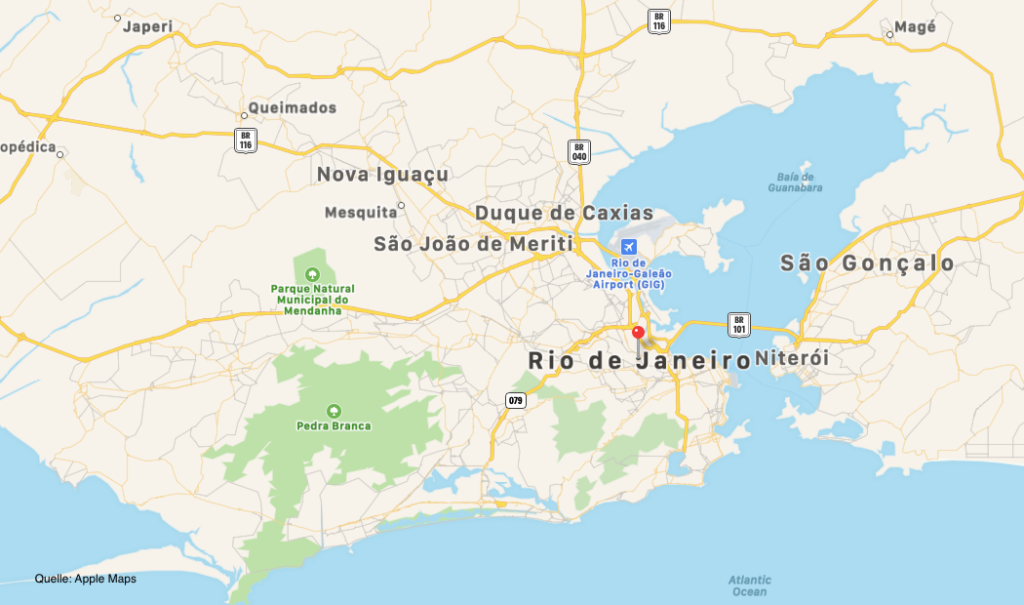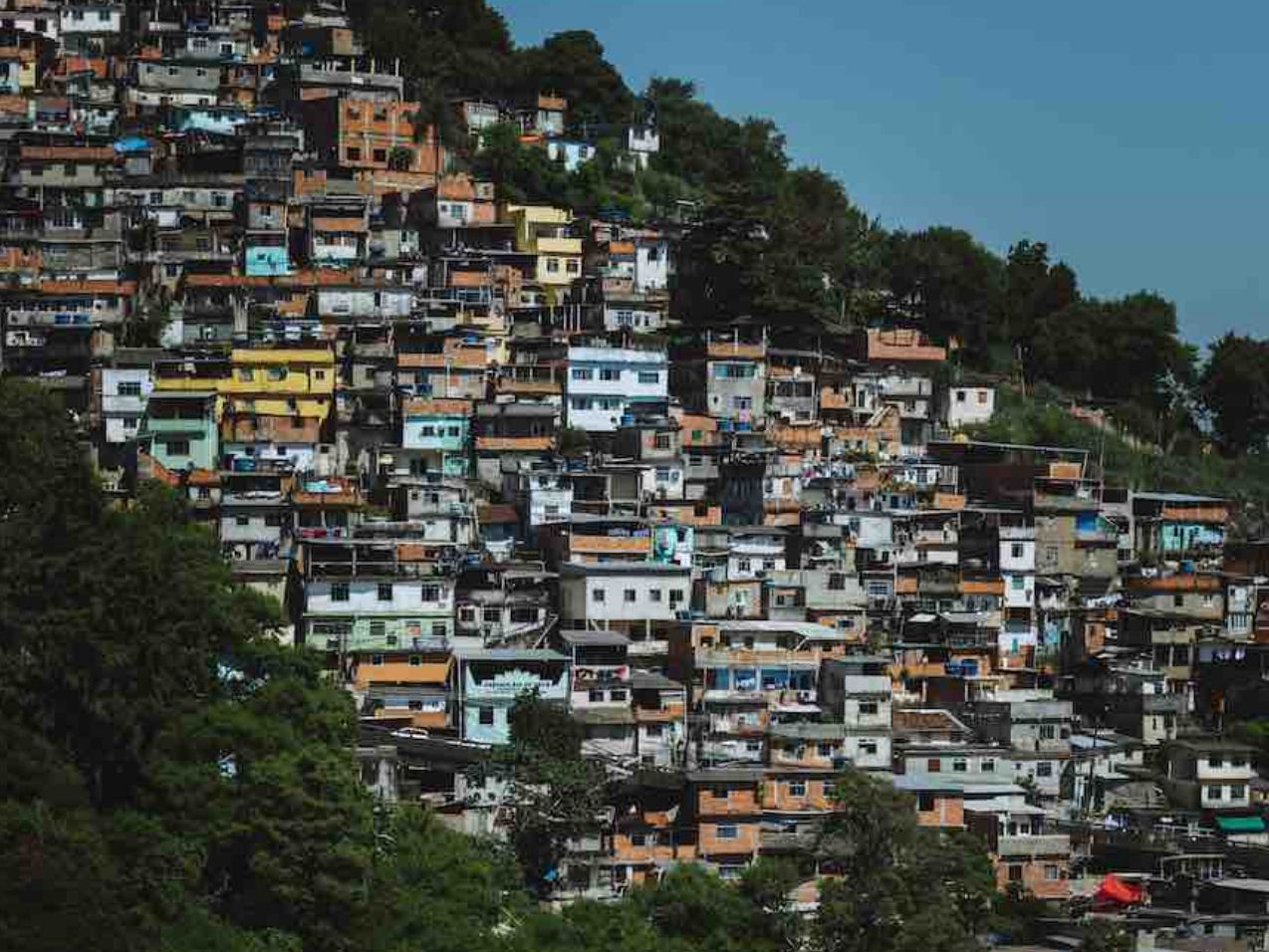oeoo in Brazil
21. October 2020 2023-02-11 20:54oeoo in Brazil
Since the summer of 2019, there is also a Brazilian offshoot of oeoo in Rio. Thaiane's team is carrying out cleanups of the surrounding beaches and bays, launching educational projects against plastic waste and working with local fishermen to clean Guanabara Bay and the Atlantic coast off Rio.
oeoo in Rio de Janeiro
Since summer 2019, there has been a Brazilian branch of oeoo in Rio. In spring 2020, oeoo was officially recognized as a standalone NGO in Brazil, which has greatly facilitated its work there.
The team led by Thaiane carries out numerous cleanups of the surrounding beaches and bays and has started first education projects against plastic waste for children and teenagers.
In close cooperation with two local fishing communities, beaches in the heavily polluted Guanabara Bay and along the Atlantic coast before Rio are cleaned.
Due to Corona, the first large cleaning campaign of the Guanabara Bay together with local fishing cooperatives and other volunteers was delayed until December 2020. But it was a complete success! Seven truckloads with almost 20 tons of waste came together, 200 local fishermen and volunteers helped for two days.
The nationwide german TV station ZDF also reported on it in February 2021:

As a South American megacity, Rio de Janeiro has to deal with enormous waste problems, environmental protection we still write there quite small. Especially the waters off the metropolis of Rio de Janeiro are extremely polluted – a large part of it is plastic waste.
A hot spot for many years has been the large Guanabara Bay, which is polluted by heavy industry sewage, faeces, garbage and chemicals. A study by the Heinrich Böll Foundation in 2014 already spoke of around 18,000 litres of waste water per second flowing into the bay. Scientists at Brazilian research institutes see pollution as a threat to humans and nature and consider the level of diseases transmitted when in contact with the waters of Guanabara Bay to be dangerously high.
In cooperation with two local fishing communities, oeoo Brazil wants to clean the bay with adapted fishing nets. In a first attention-grabbing cleaning project, up to 40 tons of plastic waste will be removed from the bay with the help of local fishing communities and recycled by our recycling partner TOMRA Sorting.


























School project with children from the favelas in Rio
Together with the local NGO Futurobom and the Colibri Collective, oeoo Brasil will launch a multi-year environmental education project for children of the public Vidigal school in the favelas (poor districts) of Rio. The Prefeito Djalma Maranhao school is located above the beaches of Leblon and Vidigal. Two classes with a total of about 80 children aged 9-10 years are taught about plastic waste and environmental protection. The aim is to raise children’s awareness of the pollution of the sea by plastic. Indirectly, their families, the entire school and the municipality of Vidigal will also benefit. As part of the project, there will also be joint cleanups with the children on the local beaches in Rio.
FuturoBom has been providing Vidigal students with access to education and sport for years. The Colibri collective offers training in the areas of environmental protection and sustainable consumption. The joint project is currently being prepared by Caroline and Laura from oeoo Brasil and is scheduled to start in early summer. Photo by Andy Falconer on Unsplash.
Corona-related, the project is currently unfortunately dormant.

Sea Cow
In Rio de Janeiro wurde von oeoo ein Müllsammelschiff reaktiviert, das bereits zu den Olympischen Spielen 2016 die Guanabara-Bucht gereinigt hatte. Dort sollten die Segelwettbewerbe stattfinden, doch sie versank schon damals im Müll.
Das Schiff wurde für unsere Reinigungszwecke in Rio umgebaut und ist nun als “Sea Cow Rio” seit März 2022 im Einsatz.
Laura Kita Kejuo
Laura ist Übersetzerin für Deutsch und leitet als Diretoria-Presidente seit Sommer 2019 unsere Dependance oeoo Rio.
Sie lernte oeoo durch einen Dolmetscherauftrag in Rio kennen. Günther gründete gerade den Ableger von oeoo für Reinigungsprojekte in Brasilien. Denn in Rio landen täglich viele Tonnen Plastikmüll im Meer (besonders in der Guanabara-Bucht, an Stränden und Flüssen). Laura war überzeugt, dass eine langfristige Reinigungs- und Aufklärungsarbeit im Brasilien dringend nötig war und hat sich oeoo angeschlossen. Sie ist Gründungsmitglied von oeoo in Rio.
Lauras Aufgabenbereich bei oeoo ist die Koordination des oeoo-Büros in Rio. Gemeinsam mit ihrem Team plant sie Cleanups zusammen mit erfahrenen Fischern, veranstaltet Umweltschutzvorträge für Kinder und Erwachsene und baut Kooperationen für Forschung und Zusammenarbeit mit lokalen Firmen und Experten auf.
Caroline Verna
Caroline, Französin, lebt seit 2014 in Rio und erforscht die Guanabara-Bucht.
Sie hat sich entschieden, oeoo als wissenschaftliche Direktorin beizutreten, weil sie sich in die Stadt Rio und ihre Region verliebt hat. Wenn sie die Guanabara-Bucht im Stadtgebiet sieht, sieht sie ein erstaunliches Ökosystem, herrliche Strände, und sie fände es großartig, wenn sie wiederhergestellt würde. In der Nordzone schwimmen noch immer Kinder in ihr, obwohl sie durch Abwässer, Abfälle, Benzin und Plastikmüll (meist Hausmüll) stark verschmutzt ist. Die ansässigen Fischer fischen manchmal mehr Plastik als Fische. Der Mangrovenwald, der früher den größten Teil der Küstenlinie bewachsen hatte, wurde reduziert. Caroline glaubt, in eine saubere Bucht würden die Fische, Delfine und Wale zurückkehren, von denen es jetzt nur noch vereinzelte Exemplare gibt. Die Gesundheit der Kinder und ihrer Familien in der Nordzone ließe sich verbessern, wirtschaftliche und touristische Möglichkeiten in der Region (Fischen, Strandaktivitäten, Tauchen, Segeln …) könnten geschaffen werden. Die Bucht lebt noch und Caroline hofft, dass ihre Kinder eines Tages wieder sicher darin schwimmen werden.Da oeoo in Rio 2019 neu gestartet wurde, ist sie derzeit ein bisschen das Mädchen für alles, obwohl sie sich auf die Erforschung der Guanabara-Bucht konzentriert, vor allem über Art, Menge und Quellen der Verschmutzung durch Plastik forscht, sowie ein Netzwerk von Kontakten mit Universitäten und anderen in Rio tätigen NGOs aufbaut.





